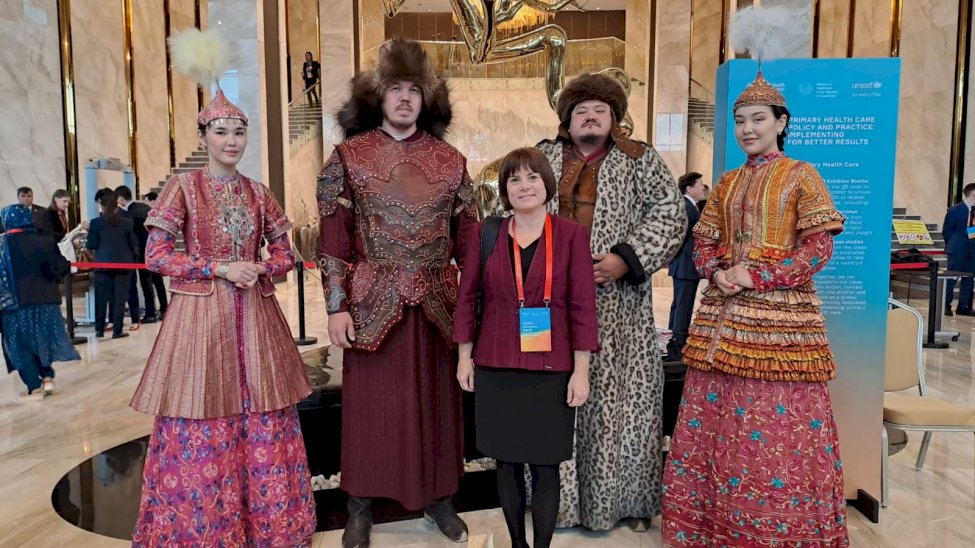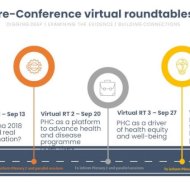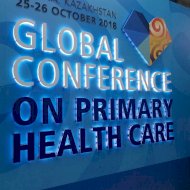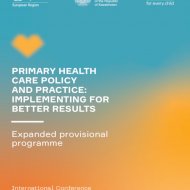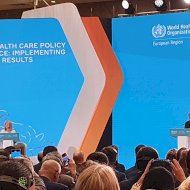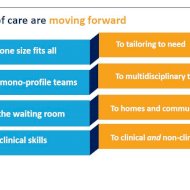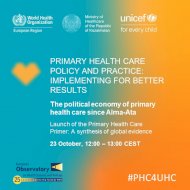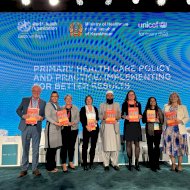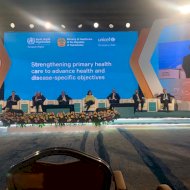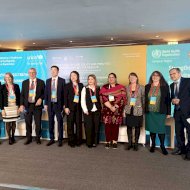Zalika Klemenc Ketis, WONCA Europe Treasurer, represented WONCA Europe and WONCA World at the conference "Primary health care policy and practice: implementing for better results", an official side event of the 73rd session of the WHO Regional Committee for Europe, held in Astana, Kazakhstan, on 23rd October 2023.
WHO/Europe, together with UNICEF and the Government of Kazakhstan, co-hosted this international conference to celebrate the 45th anniversary of Alma-Ata and 5th anniversary of Astana declarations on primary health care.
During the conference, a scale-up of Primary Health Care (PHC) models of care was presented. PHC models of care moved forward from one size fits all to tailoring to patient’s needs, from mono-profile teams to multidisciplinary teams, from the waiting room to homes and communities, and from clinical skills to clinical and non-clinical skills.
The plenary entitled “Synergizing public health and primary health care to drive results for equity and development” offered innovative methods from different countries for equity assurance. The participants agreed that equity is assured with universal access to PHC for all. The key is social participation, which enables active participation of patients and their communities in health care. For assuring equity in health, it is important to improve health literacy. The right to access to PHC in a human right and should be written in the constitution. However, after 45 years, we are still fighting for universal access to health care. Still, countries invest resources in wars and not in health. We need to focus on prevention, adapted to new social, economic, political, and other circumstances, to assure sustainability and planetary health. We need a complex and systematic approach. We need to put people over profit.
The plenary session entitled “Health workforce policies to strengthen primary health care delivery” was very informative. We learned that GP workforce density in Europe declined in the last years. This is a ticking time bomb, as the majority will retire in the next years and junior doctors in the next generation are scarce. Why are there shortages of health workers? There are two main areas. The first one is increased attrition of health workers due to ageing, premature deaths, migration, and resignation of health workers from their jobs. The second area is increased demand for services due to population ageing, increased incidence of chronic diseases, COVID-19 backlogs, and increased patient expectations. What are the solutions? We need to build a supply of health workers, invest in health care and the workforce, retain and recruit, optimise performance of health care, and plan future interventions carefully and strategically
It is of the utmost importance that PHC teams adopt the measures as their own. Without that, the progress of PHC in not possible.
At the end of the conference, a youth-led statement was presented. The engaged young people called on decision makers to give priority to the following issues:
1. Ensuring equitable and inclusive access to primary health care
2. Moving towards primary health care-oriented health systems that are safe, people-centred and clinically effective
3. Investing in a primary health care-oriented workforce
4. Ensuring the human and relational aspects of primary health care amid the opportunities of the digital era
5. Enhancing resilience to current and emerging health and well-being challenges: mental health, social vulnerabilities, the impact of climate change and emergencies
https://www.who.int/europe/publications/m/item/youth-led-outcome-statement

